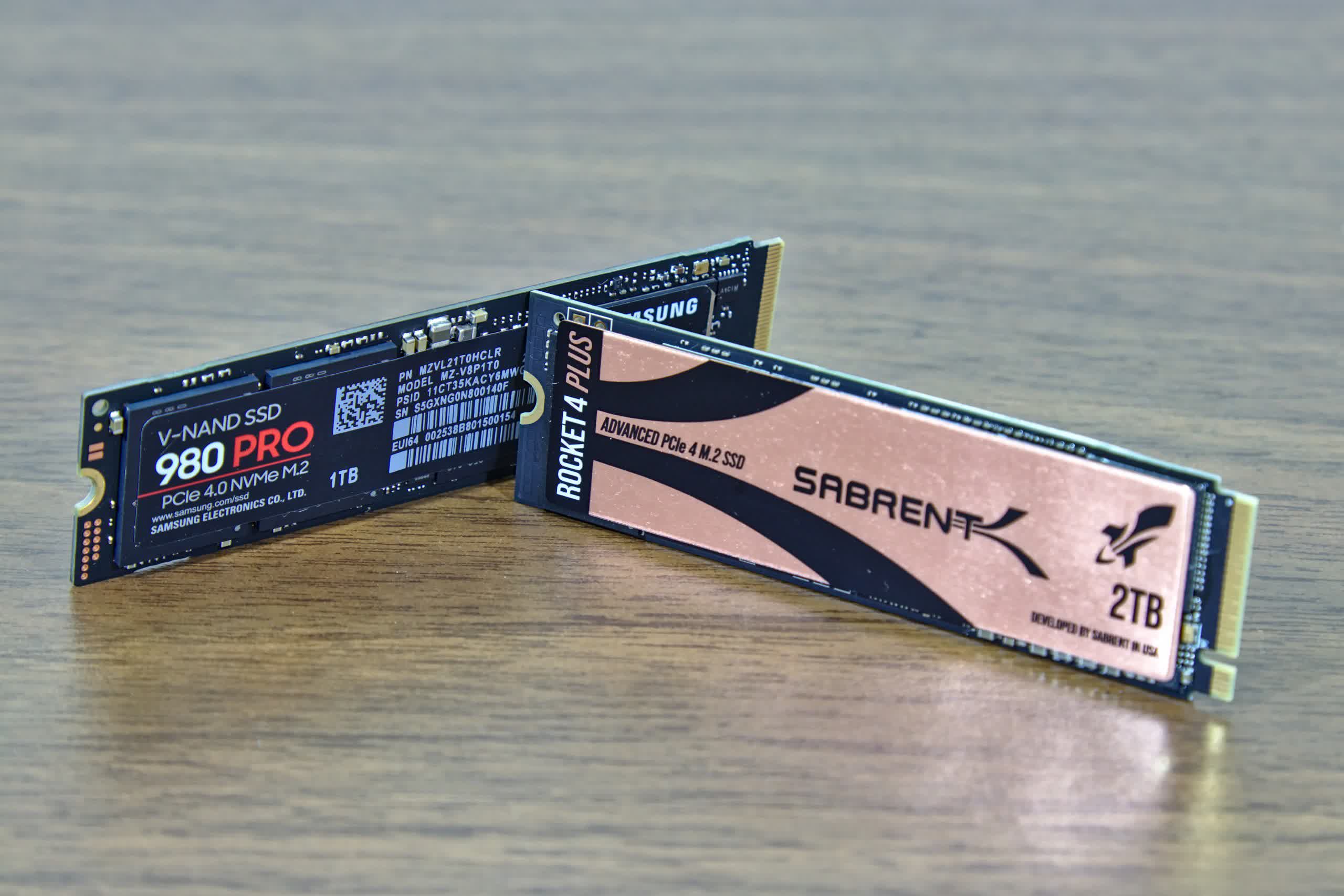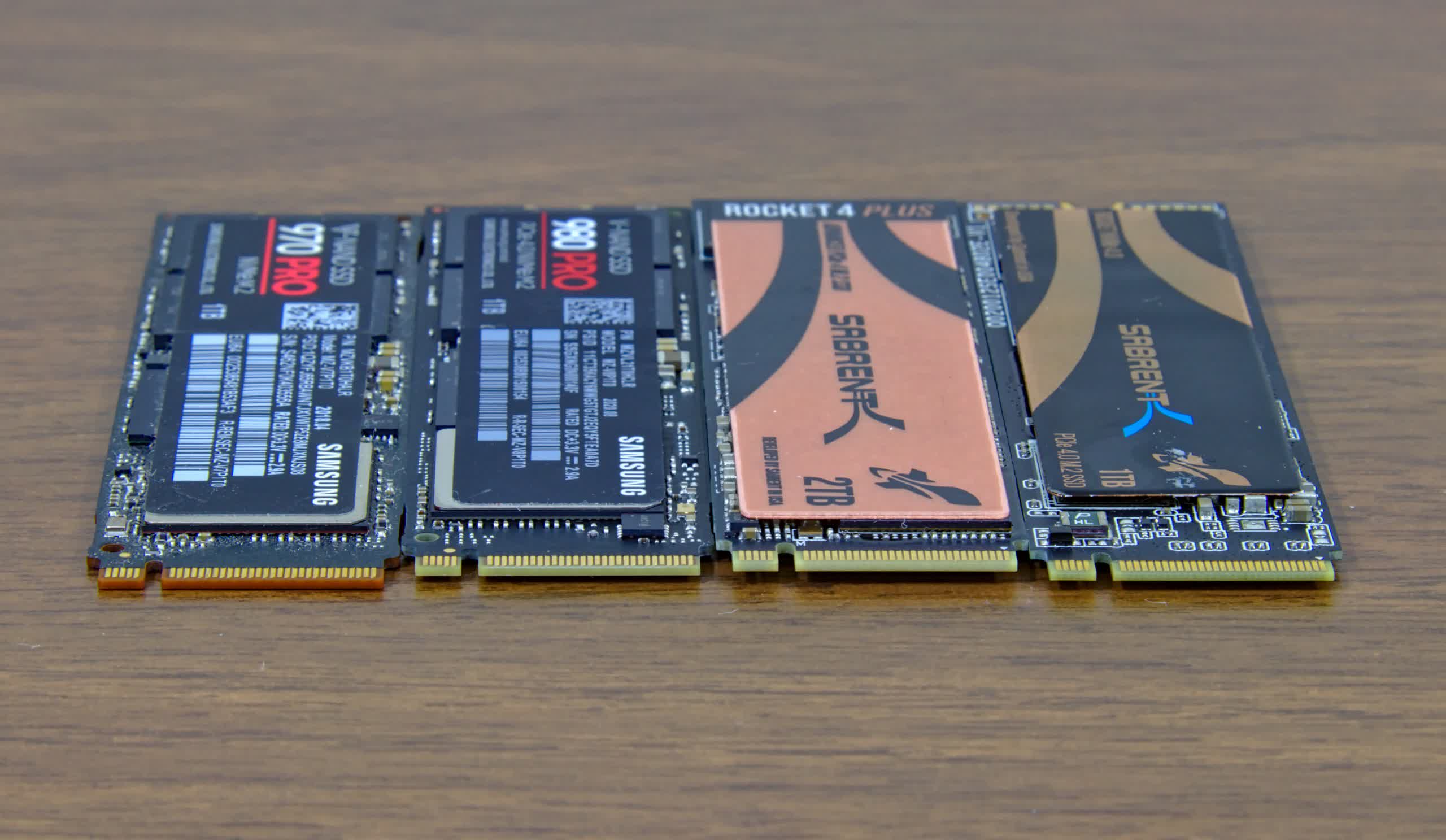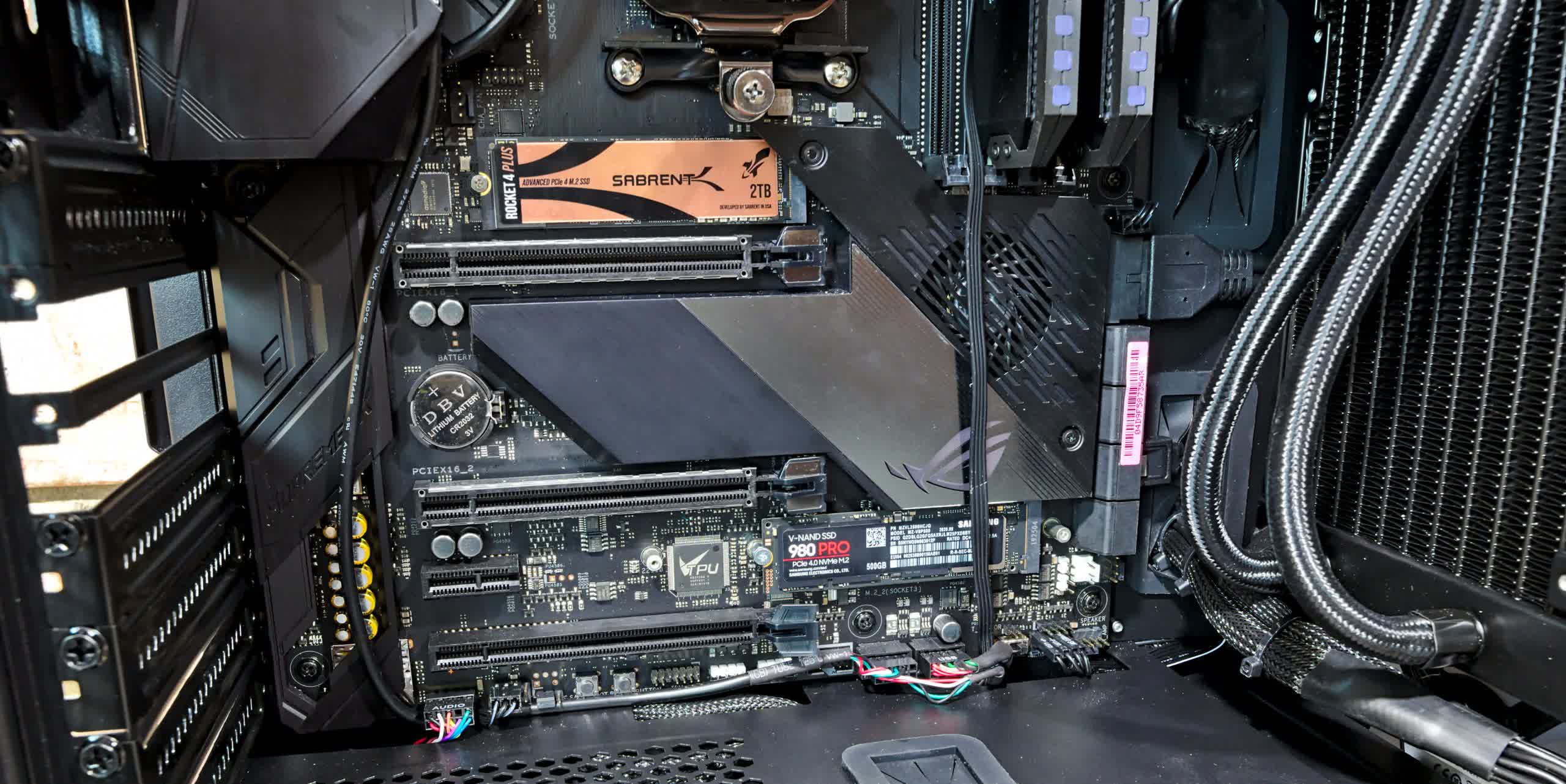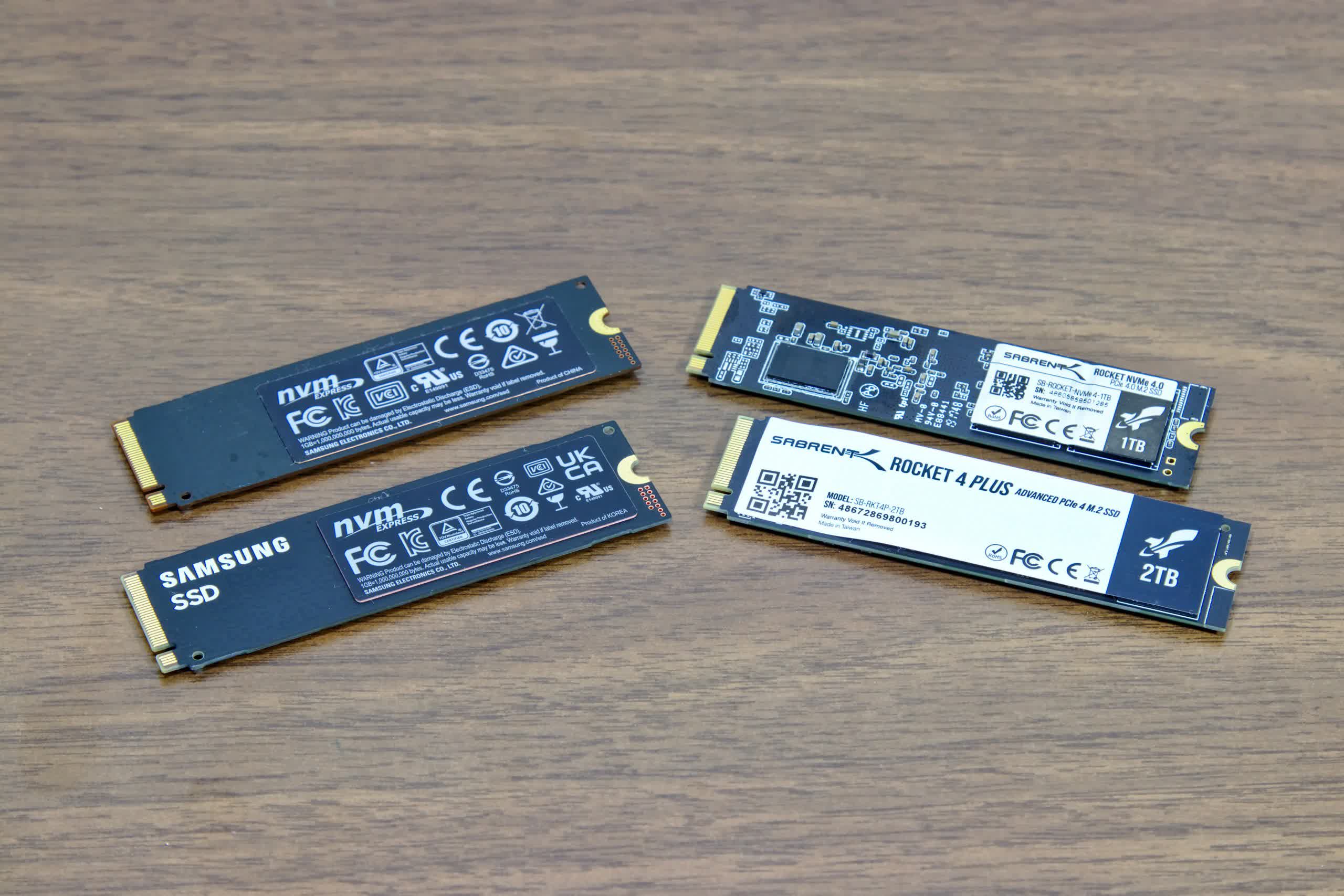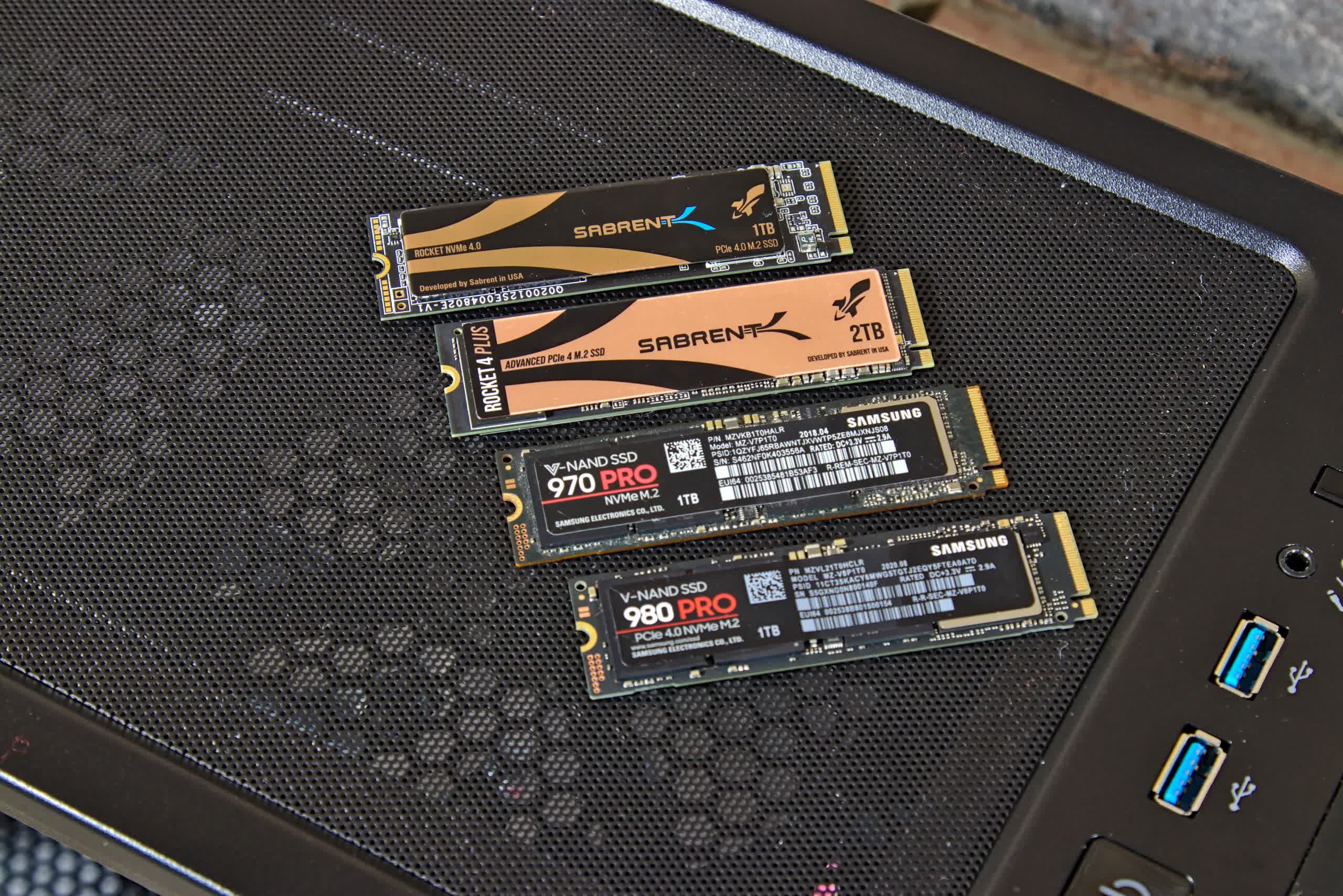For a long time, if you wanted the best consumer SSD on the market, Samsung was the simple and short answer. However in our 2019 SSD roundup, Sabrent came in as a dominant newcomer looking to dethrone Samsung. We loved their Rocket 4 SSD which performed extremely well. What was even better, it was considerably more affordable than Samsung's 970 Pro series.
In the year that followed, Sabrent drives gained popularity and kept receiving positive ratings across the board. We noticed our review of the Rocket 4 kept getting a ton of traffic from those who were researching the drive before buying, and they sold like crazy. With both Samsung and Sabrent now out with updated product lines, the SSD 980 Pro and the Rocket 4 Plus, respectively, we're back to see which drive is best.
We'll be comparing Samsung's 970 Pro and the 980 Pro as well as Sabrent's Rocket 4 and the Rocket 4 Plus in a series of tests. All drives were set up with the same Windows 10 image and we used the Origin Neuron gaming desktop which we recently reviewed as our testbed. This configuration includes a Ryzen 7 5800X CPU, 16GB of RAM and Asus' ROG Crosshair VIII Hero motherboard.
Performance
We started with a wide-ranging synthetic test from Anvil that measures speed, response time, and IOPS across several configurations. The results are combined to produce a final performance number.
| Samsung 970 Pro | Sabrent Rocket 4 | Samsung 980 Pro | Sabrent Rocket 4 Plus | |
| Anvil Score | 18315 | 22847 | 23259 | 26082 |
From this, we can expect the Rocket 4 to deliver performance on-par with the 980 Pro. The 970 Pro is about 20% slower, and the Rocket 4 Plus is ~10-15% faster.
Now let's look at standard read and write speeds across different file sizes. The 970 Pro has a max rated read speed of 3500 MB/s and a max rated write speed of 2700 MB/s. For the Sabrent Rocket 4 (which is a PCIe 4.0 drive), it's 5000 MB/s read and 4400 MB/s write.
The new Samsung 980 Pro is rated at 7000 MB/s read and 5000 MB/s write, while the competing Sabrent Rocket 4 Plus is rated at 7100 MB/s read and 6600 MB/s write. These numbers are just like Wi-Fi speed ratings in that they're only guidelines and you'll never actually hit them.
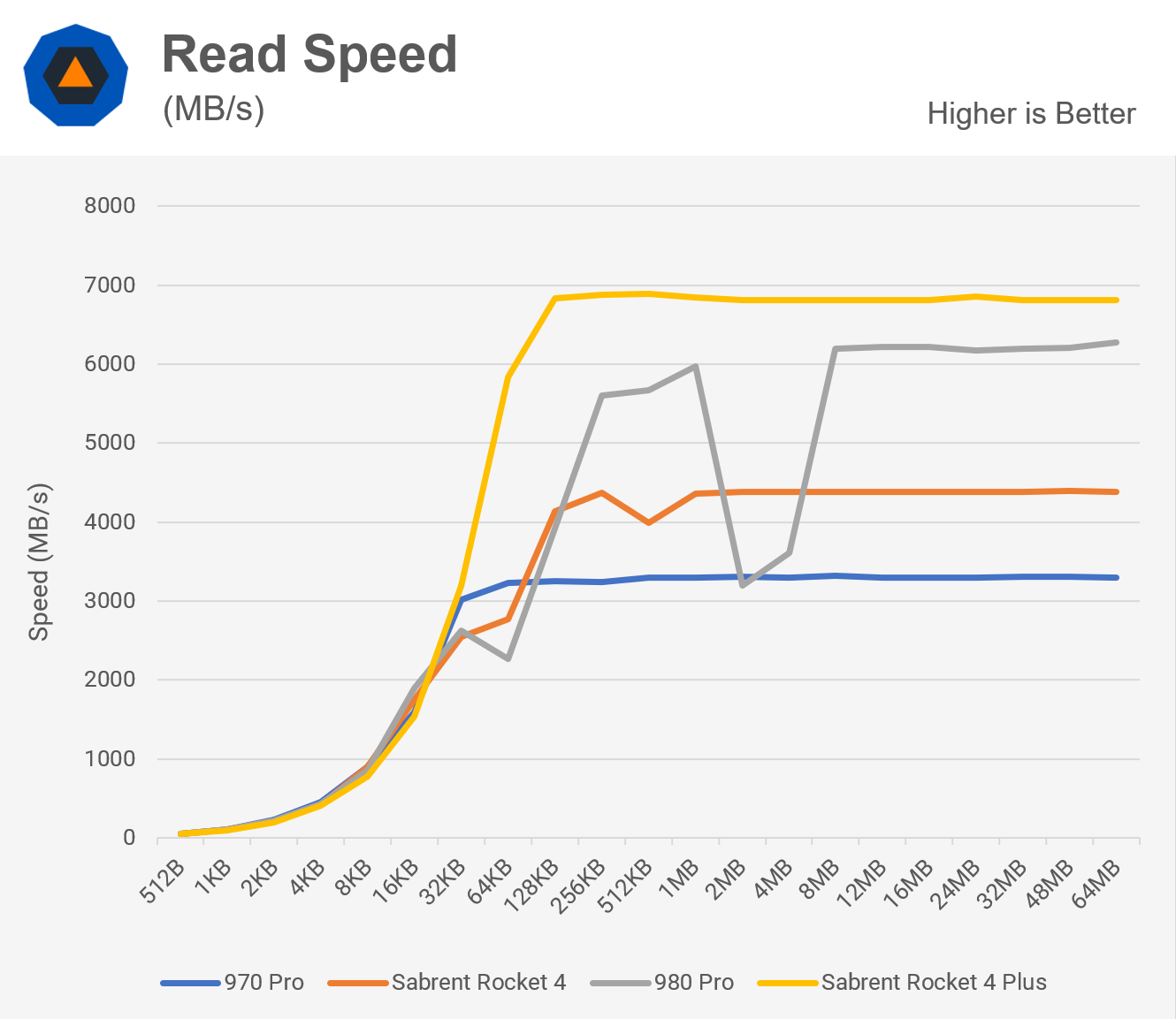
Looking at our measured results, the 970 Pro comes extremely close to the spec. The Rocket 4 is about 10% off in both reads and writes. The 980 Pro is quite interesting. In the read test, it never made it past 6300 MB/s and our unit had a strange drop in performance with files around 2-4MB. It beat its rating slightly in the write test for 64KB files, but then fell about 10% below the mark for larger files. The Rocket 4 Plus was very close to the spec rating in both tests and is the clear winner on paper. Keep in mind that these are best-case scenario tests and real performance will be lower.
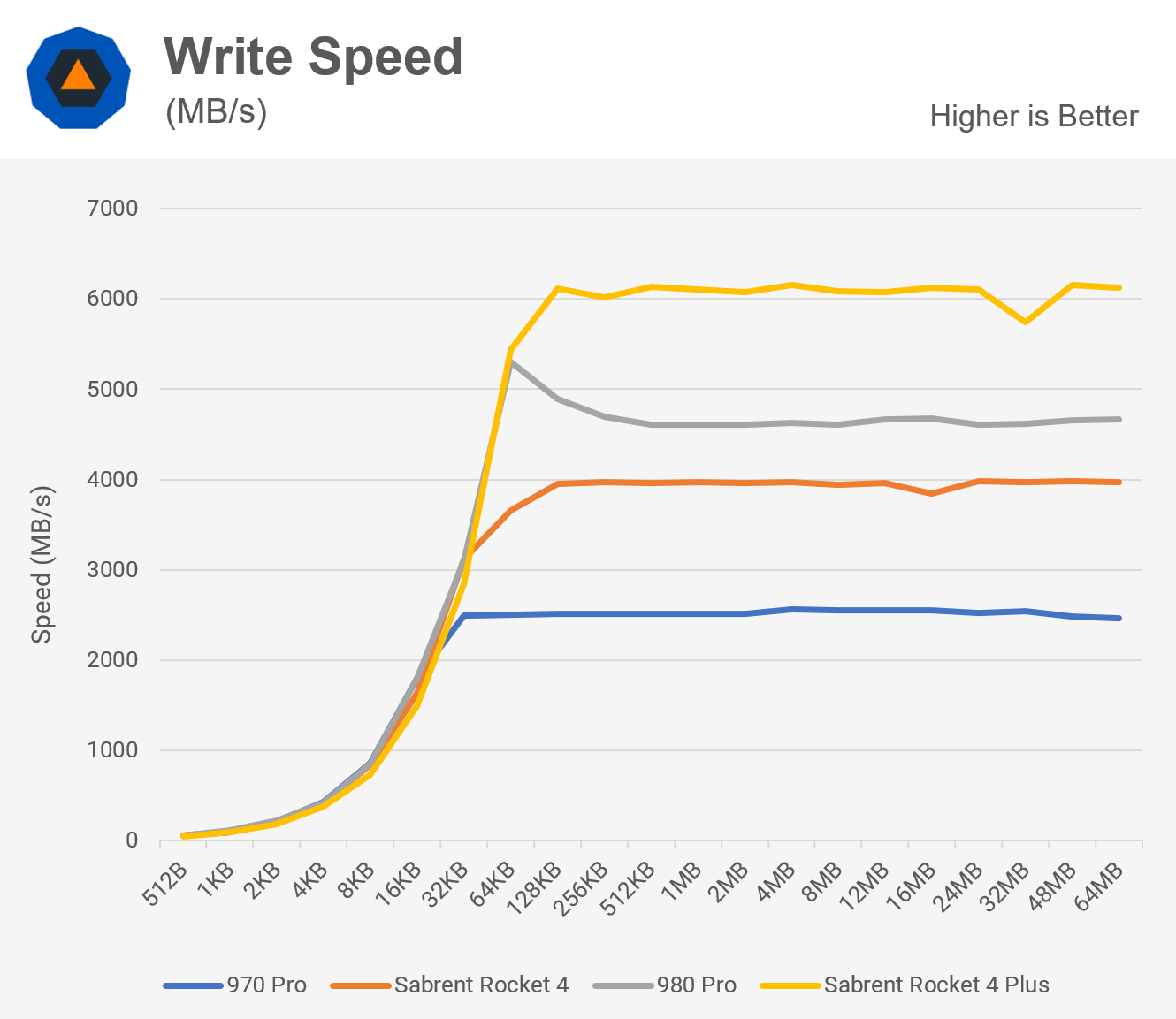
Next, we'll check out response time. You can think of this like ping for your SSD. Having a fast internet connection doesn't matter if your ping is too high to do anything useful.
The same concept applies to drives and represents how long the drive takes to respond to a request. Results are shown for both 4MB and 4KB files.
The 970 Pro struggles here compared to the newer drives and the Rocket 4 isn't much better. This shows the generational improvements in storage controller design. The 980 Pro and Rocket 4 Plus are very close, but Sabrent comes out slightly ahead. A fraction of a millisecond here and there may not seem like much, but when a drive is processing thousands or more of files a second, it adds up.
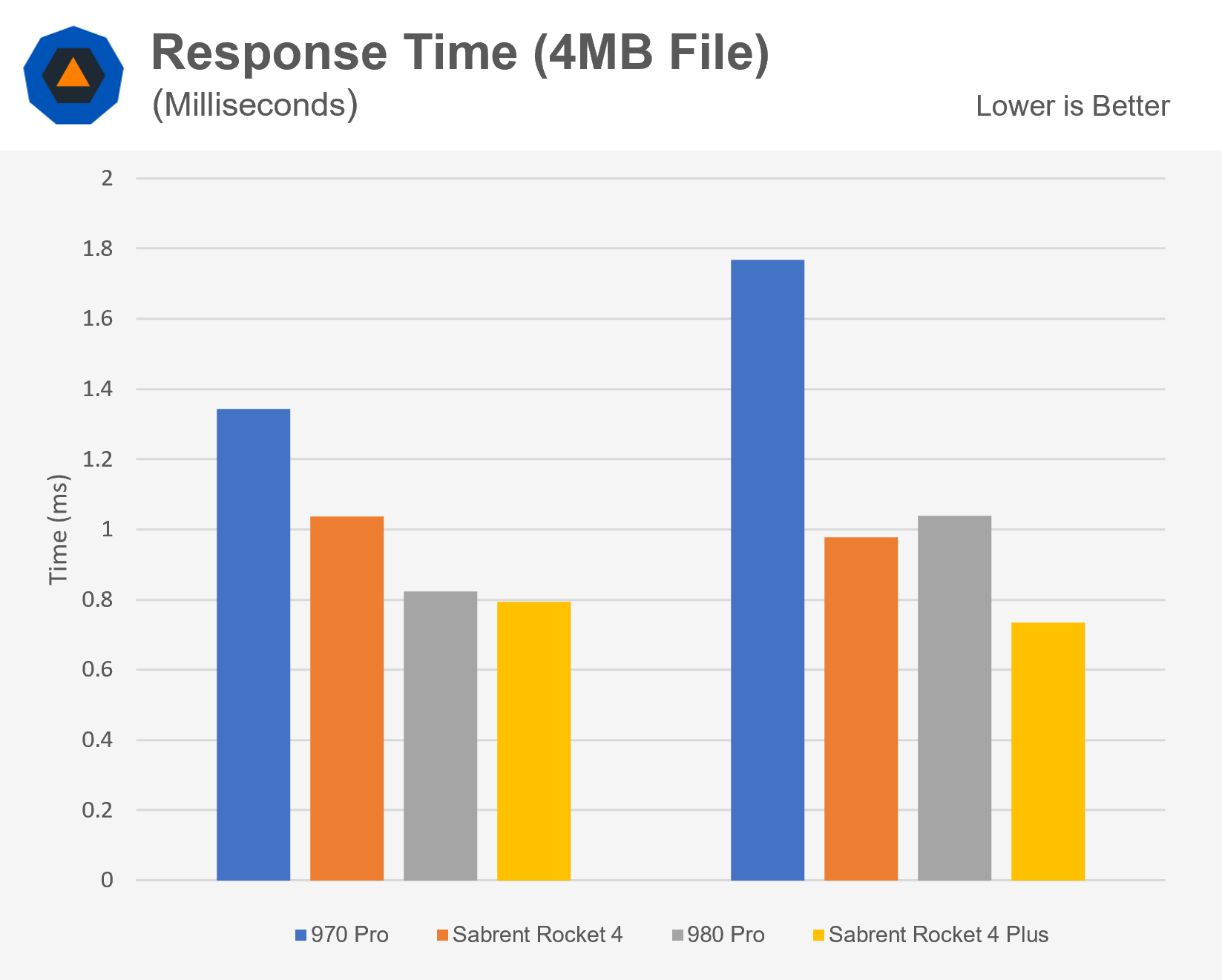
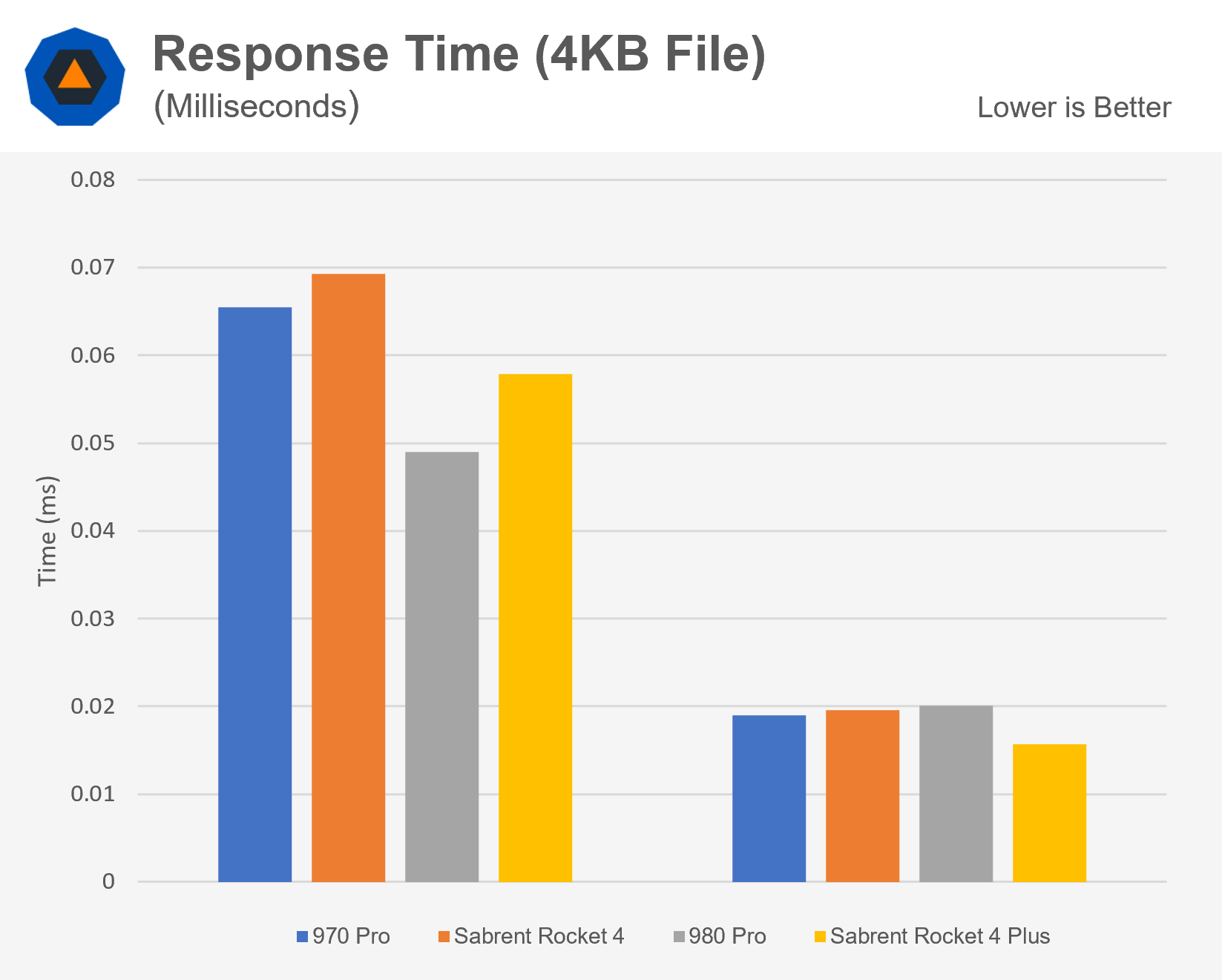
That's it for the synthetic tests.
Now we'll look at numbers for tests closer to real world scenarios. The next two tests represent the average time it took to copy a set of files from one partition on the drive to another.
Real World & Gaming Tests
For the game copy test, we used a standard installation of CS:GO. It has thousands of files of varying size and takes up about 34GB of space. For the media copy test, we used a few dozen movie clips that also took up 34GB. A test like this will give significantly lower performance than the drive's rated numbers since data is being read and written at the same time. You're effectively getting half of the drive's rated throughput in each direction.
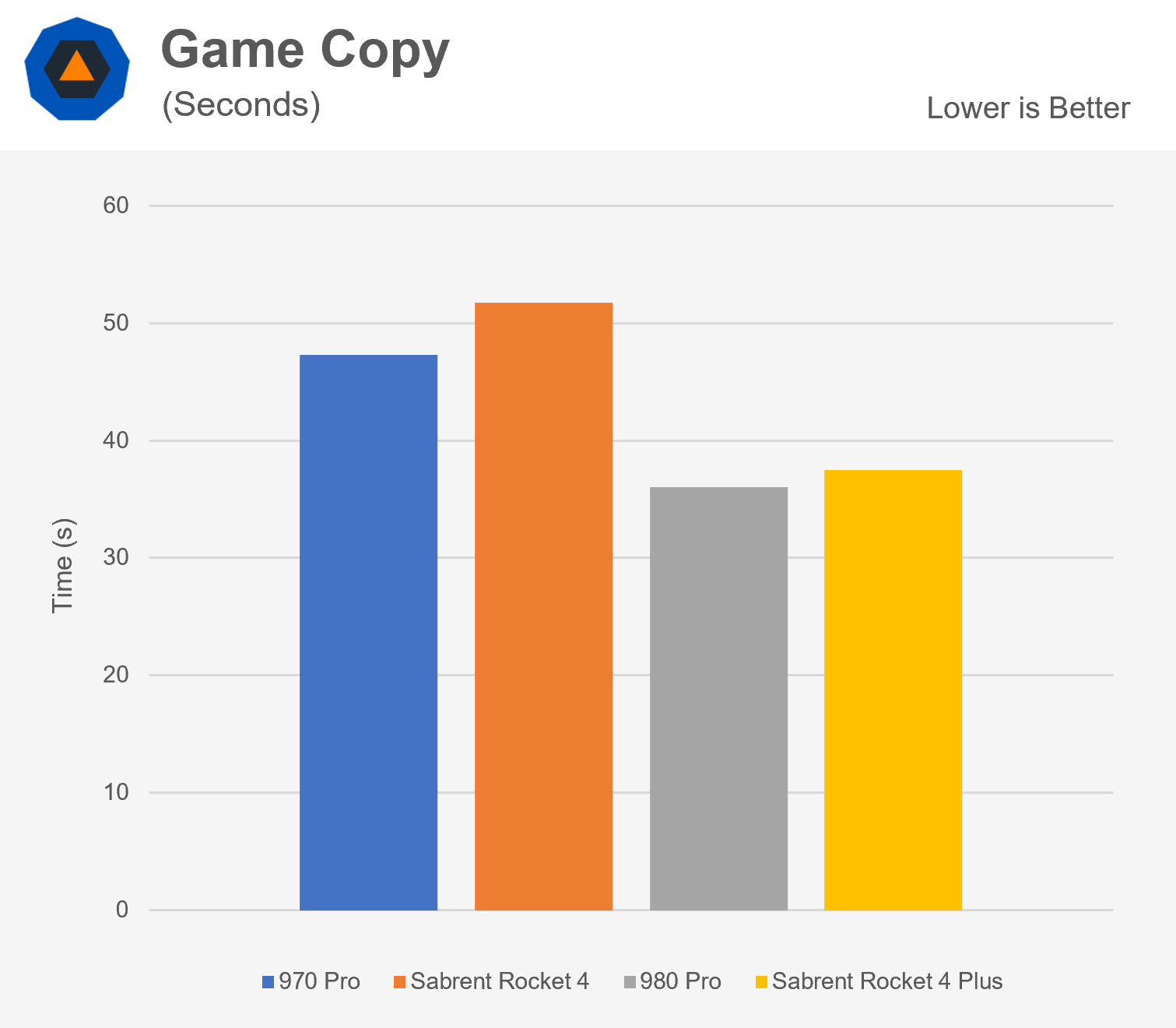
Note that although both tests copied the same amount of data, the game took about twice as long to copy. This is due to the increased overhead in locating and processing several thousand files.
Overall, Samsung's 980 Pro is the winner with the Rocket 4 Plus coming in a few seconds behind in both tests. When comparing the previous generation drives, we see the Rocket 4 is faster when copying large files, while the 970 Pro is faster when copying smaller files.
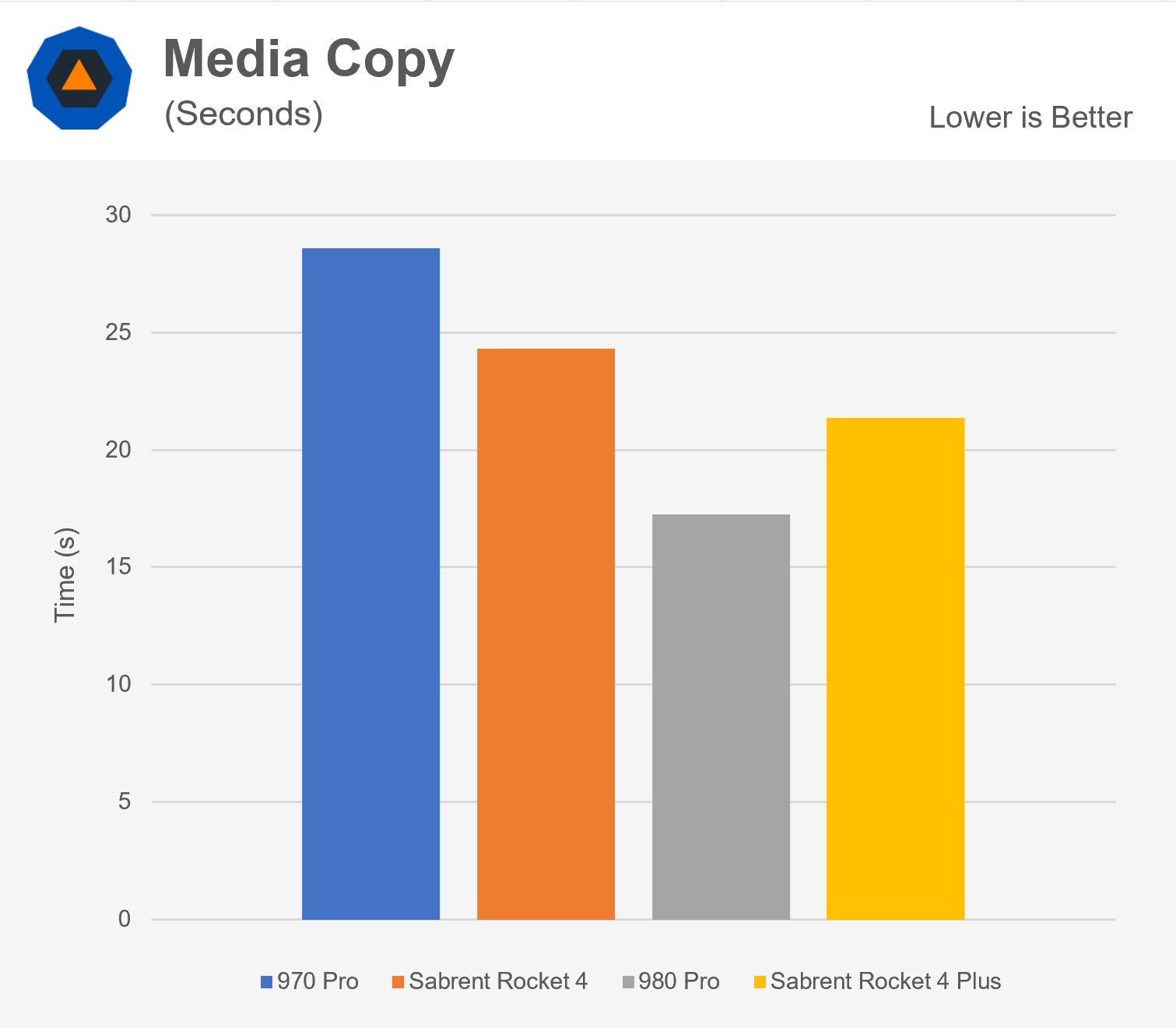
The next test we ran is a script that encrypts data, writes results to a new file, decrypts it, and then verifies the hash of the file. Encryption is a workload that happens all the time on modern systems. It's also important because it represents a task where data has to be sent to the CPU to be processed.
When you copy a file, the data never really has to leave the SSD so it can be cached. With encryption, the interface between the SSD and the rest of the system is utilized. The results of this test were essentially identical. This is one case where even though the SSDs have widely varying performance numbers, they all complete the task at the same time. Some workloads just don't benefit from increased storage performance.
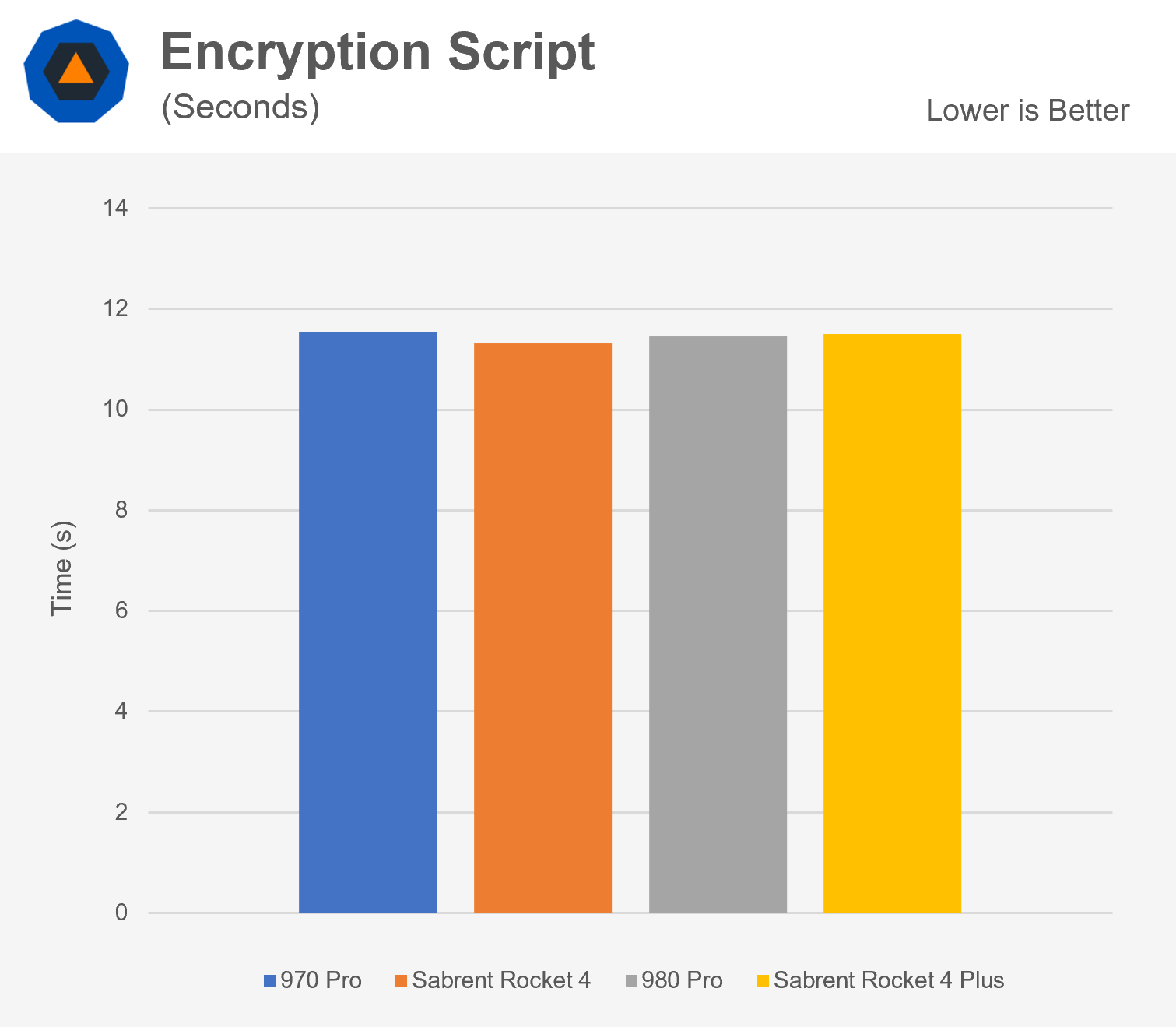
Boot time is a mixed bag. These numbers were calculated by averaging two cold boots (starting with power unplugged) and two warm boots (shutdown and restart without unplugging power). All four drives finished within less than 1.5 seconds of each other.
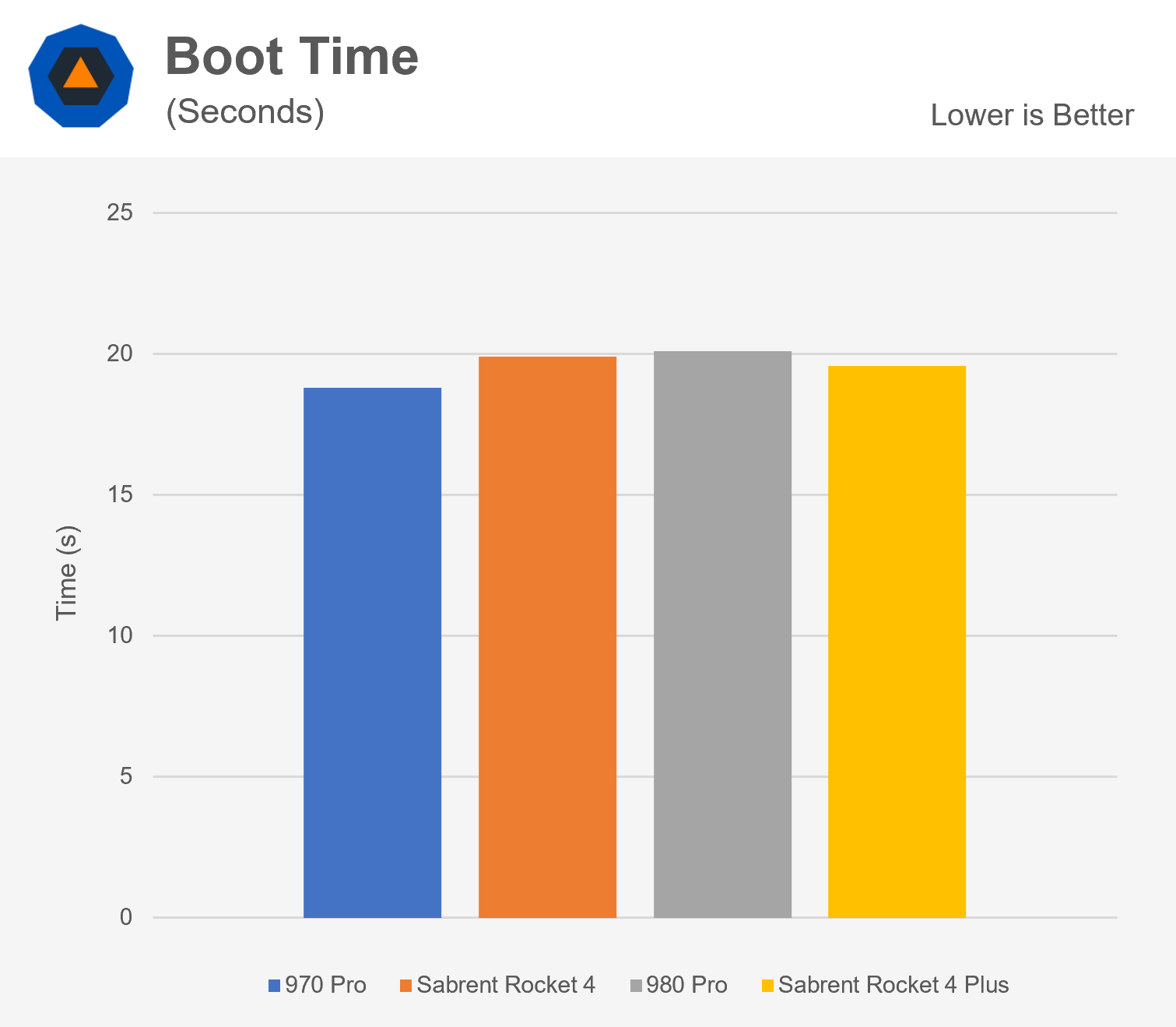
Let's look at some gaming numbers now.
We tested with Microsoft Flight Simulator 2020, a game notorious for huge files and environments. The first test was just launching the game from the desktop. We do see a slight generational improvement for both the Samsung and Sabrent products here.
For a game that takes nearly two minutes to launch, there isn't much gain though. Loading up the game is mainly just starting the game engine, something with many small files. The larger textures won't be loaded until later when we select a map/mission. The 980 Pro takes this one by a few seconds.
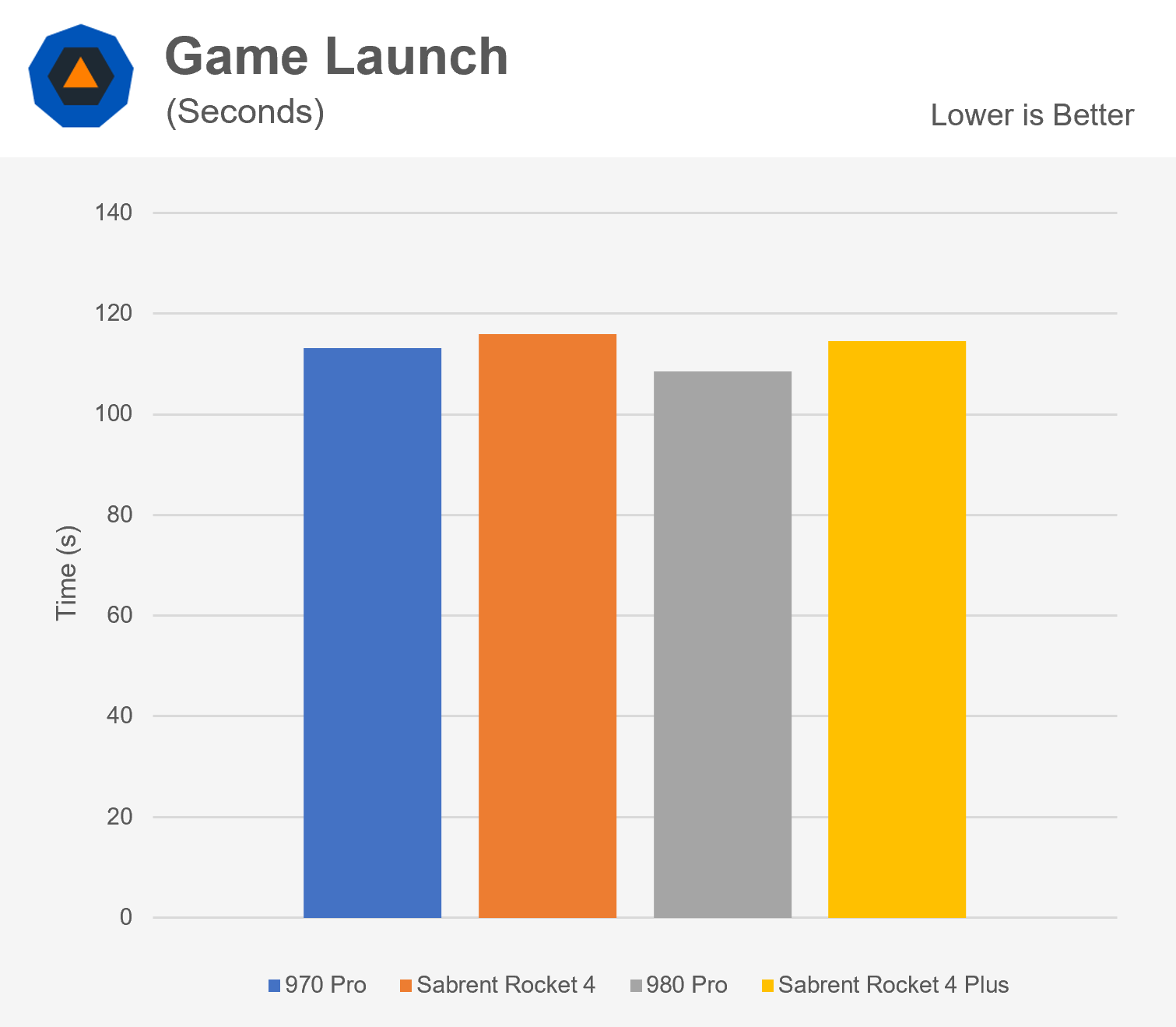
Once the game is loaded, the next test we ran was to see how long it takes to load into a scenario and start flying. We used the Jackson Hole landing challenge mission. The two Sabrent drives win here by an impressive 20% margin. This would indicate that the Sabrent drives are faster at processing a few large files while the Samsung drives are better at processing many smaller files.
We can add up both of these results to get an idea of how long it would take to go from from desktop to in-game. Surprisingly, the Rocket 4, the 980 Pro, and the Rocket 4 Plus all finished at 140 seconds with the 970 Pro barely behind at 144 seconds. This shows that despite the huge amount of data the game needs to load, there isn't any performance difference between the top three drives.
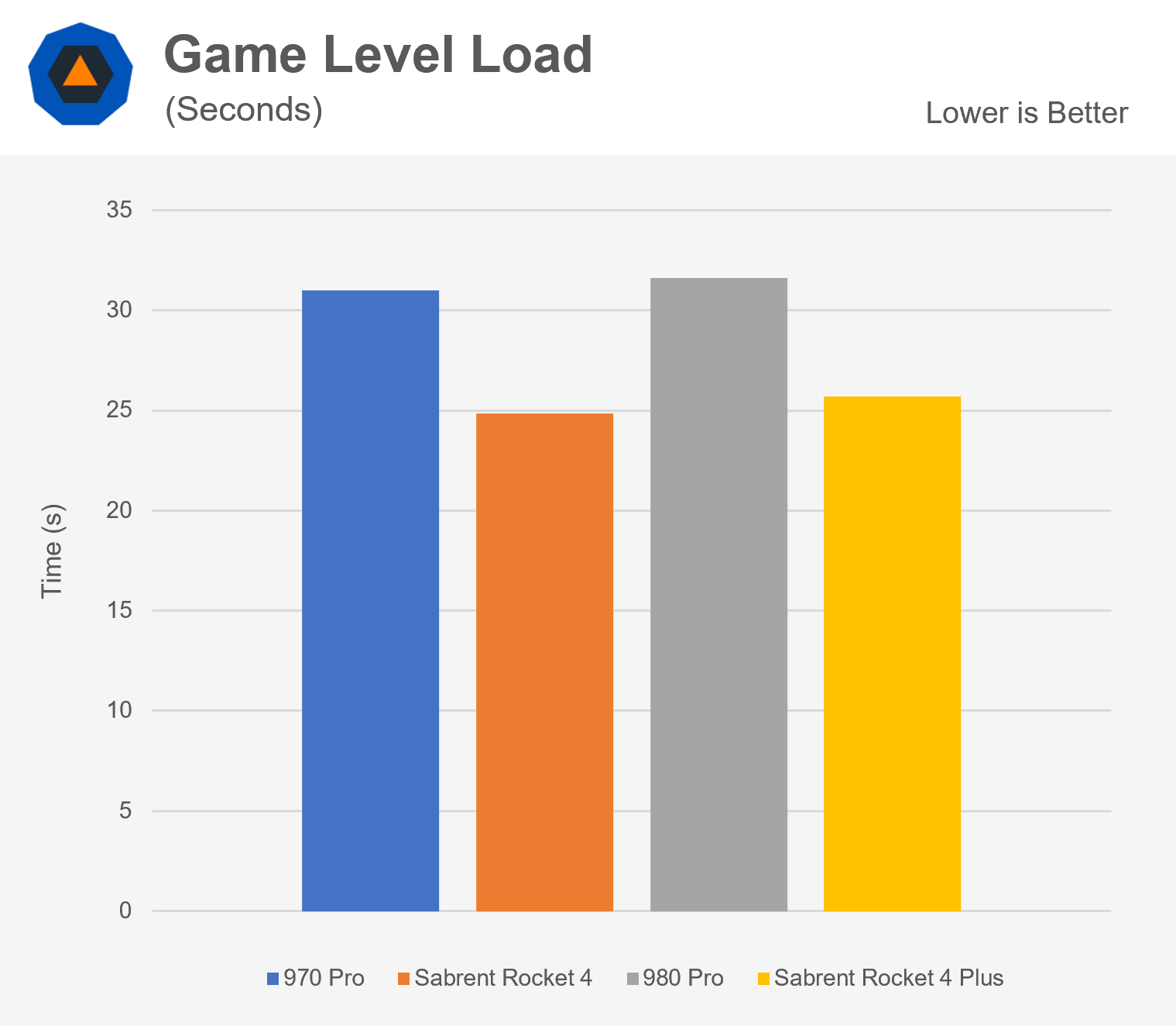
The last test we ran was a torture test. Some drives can include a small amount of very fast RAM that caches high-use data. This allows the manufacturer to use lower-speed bulk storage and still appear to be fast in certain workloads. The 970 Evo among others uses such a design. It works very well for small file transfers, but once that cache fills up, performance drops significantly.
The test we ran copies randomly generated 100GB files ten times while deleting and regenerating them each iteration. This is a total of 1TB worth of reads and 1TB worth of writes.
For reference, the 970 Pro has a rated lifespan of 1200TB written, 1800TB for the Rocket 4, 600TB for the 980 Pro, and 1400TB for the Rocket 4 Plus. It's interesting to note that the lifespan of the newer drives is lower than the older drives. We don't know why this is for the Sabrent drive, but in Samsung's case, the 980 Pro in reality is more of a successor to the 970 Evo which also used 3-bit MLC (aka TLC).
If the drives were using a cache or had poor thermal management, we would see a dip in performance partway through. Thankfully none of the drives have that issue, but the 980 Pro did slow down slightly after the 200GB mark. The Rocket 4 Plus finished the test in just over 400 seconds with the 970 Pro shortly behind. The 980 Pro finished in 3rd at just over 550 seconds. The Rocket 4 was very disappointing here taking twice as long as the next drive.
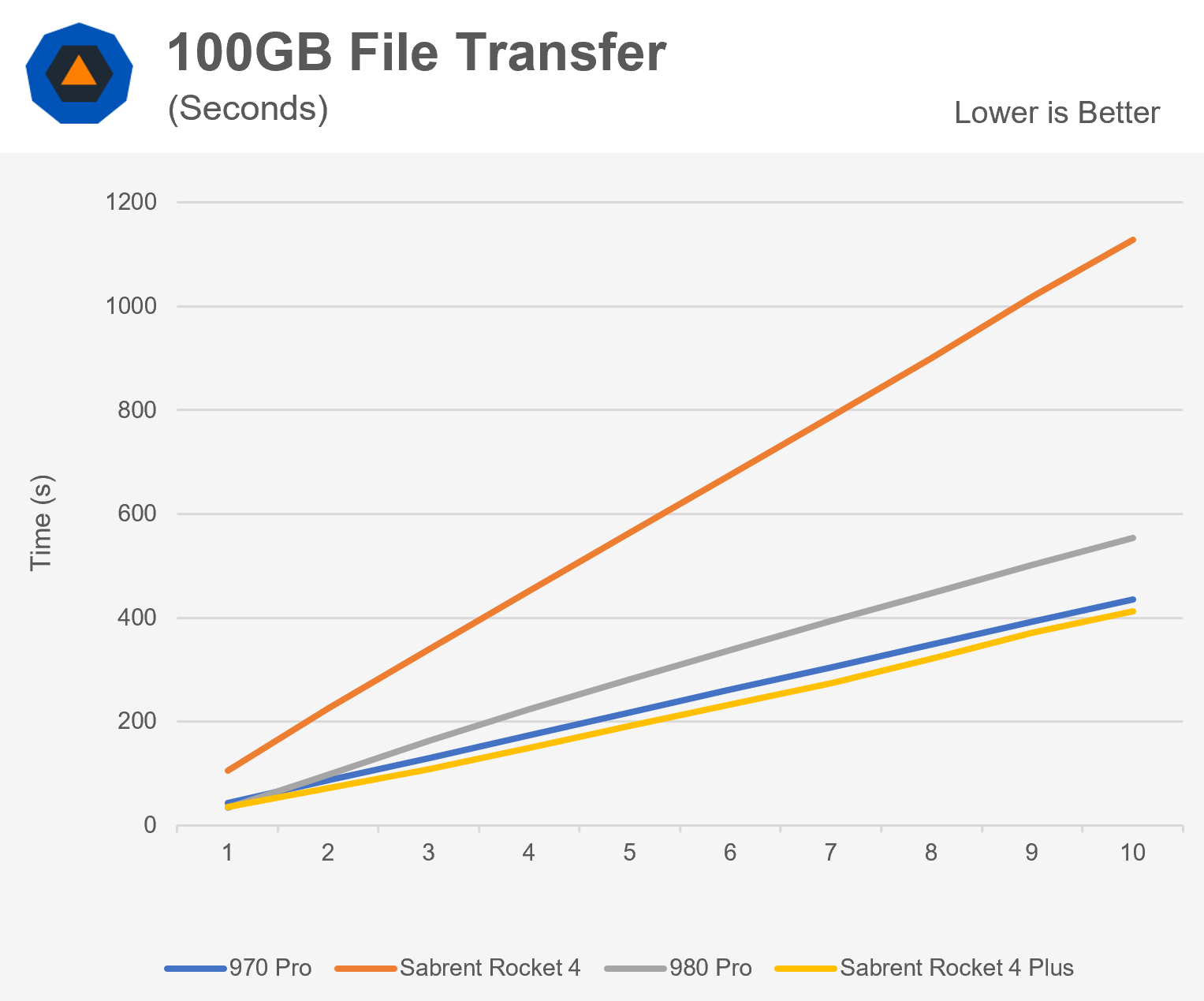
Choosing an SSD
The last graph and data table to look at, and potentially the most important to consumers is pricing. Here we see the cost per GB for each drive variant at the time of publishing. The current price for each drive and capacity is listed on the table below the graph.
The Sabrent Rocket 4 is the cheapest drive, followed by the Rocket 4 Plus per gigabyte. The SSD 980 Pro is only slightly more expensive than Sabrent's best, while the 970 Pro is the more expensive offering because of the more expensive 2-bit MLC used on that drive. This was Samsung's decision on the new series where the 980 Pro will cater to both high-end mainstream and performance oriented enthusiasts, reserving drives with higher endurance to enterprise offerings.
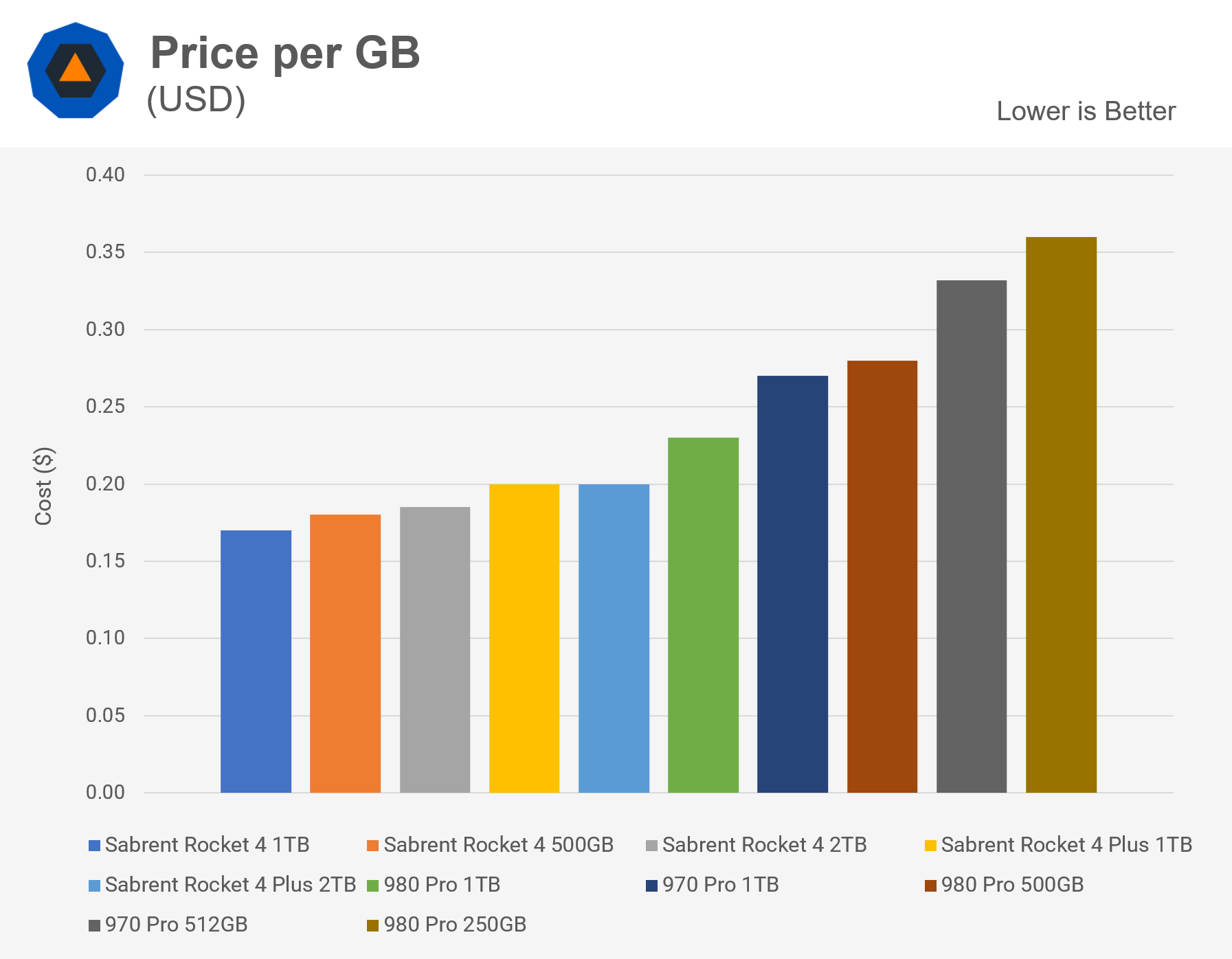
| SSD | Price per GB | Price | Capacity (in GB) |
|---|---|---|---|
| Sabrent Rocket 4 1TB | 0.17 | $170 | 1000 |
| Sabrent Rocket 4 500GB | 0.18 | $90 | 500 |
| Sabrent Rocket 4 2TB | 0.19 | $370 | 2000 |
| Sabrent Rocket 4 Plus 1TB | 0.20 | $200 | 1000 |
| Sabrent Rocket 4 Plus 2TB | 0.20 | $400 | 2000 |
| 980 Pro 1TB | 0.23 | $230 | 1000 |
| 970 Pro 1TB | 0.27 | $270 | 1000 |
| 980 Pro 500GB | 0.28 | $140 | 500 |
| 970 Pro 512GB | 0.33 | $170 | 512 |
| 980 Pro 250GB | 0.36 | $90 | 250 |
Choosing between the Samsung 980 Pro and Sabrent Rocket 4 Plus is kind of tricky as they're both aggressively priced and offer the best performance in any consumer SSD right now. Sabrent had the upper hand in terms of value and performance with the previous generation, but now Samsung has caught up and is very competitive. In fact, without the boost offered by the new Rocket 4 Plus, it would be Samsung claiming the performance throne.
The 980 Pro was slightly faster in file copying but a match in the other tests. Although the synthetic benchmarks show the Sabrent Rocket 4 Plus being faster, we doubt you'll notice any difference in daily use. Depending on pricing, you'd be just fine going with either.
As an additional note, both of these drives are at the top of the consumer SSD food chain. For further context that goes beyond this comparison, you should check out our previous storage testing comparing game load times, testing PCIe 4.0 vs. PCIe 3.0 SSDs, and a storage performance roundup where we tested everything from a mechanical disk drive to mainstream, and high-end SSDs.
Looking at all four drives, the Sabrent Rocket 4 still offers the best value of any SSD on the market. If you're on a tight budget for a 1TB SSD, just go with it and you'll be fine. However, we think the overall winner here is the Rocket 4 Plus. It's only $30 extra for the 1TB model and it will be a great SSD for daily use.
If you do lots of content creation or data-intensive work where you regularly move around large files, the extra $30 on top for the Samsung 980 Pro might be justified though. For everyone else, you'll be safe saving that money and putting it towards other components in your build.
